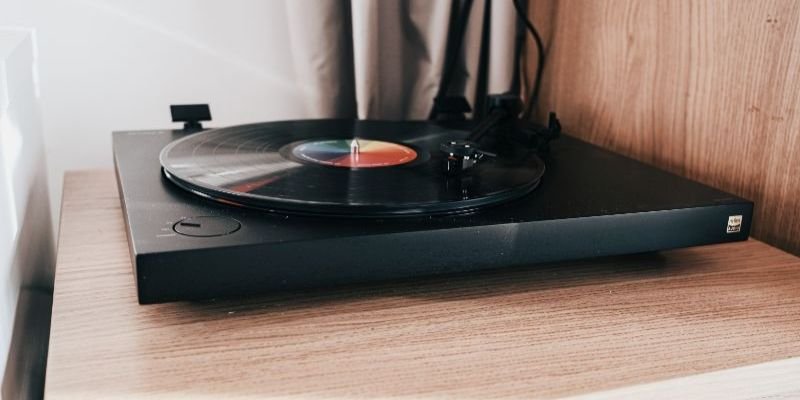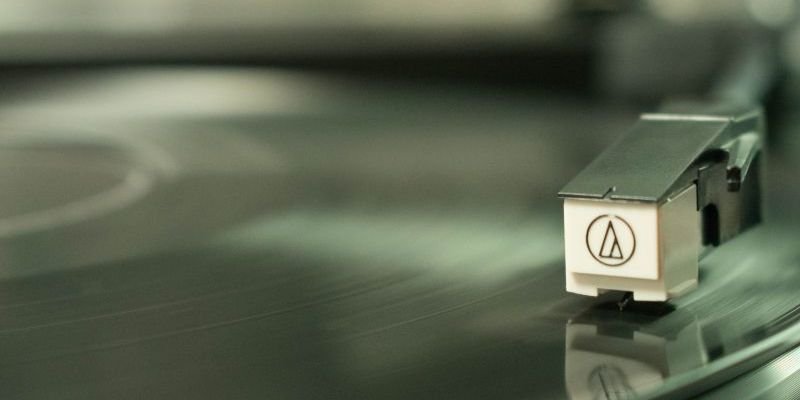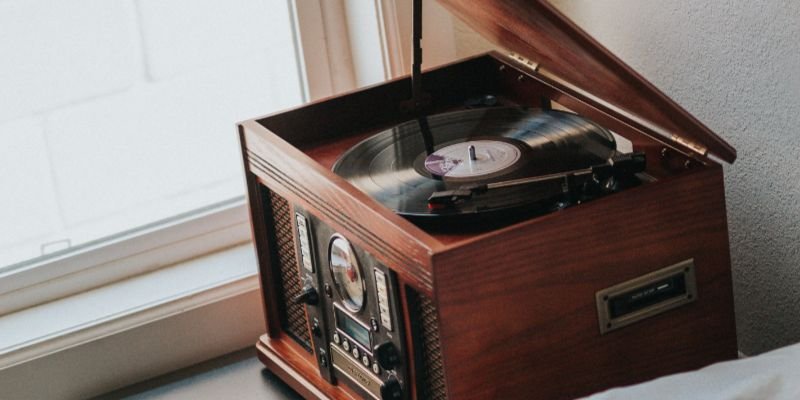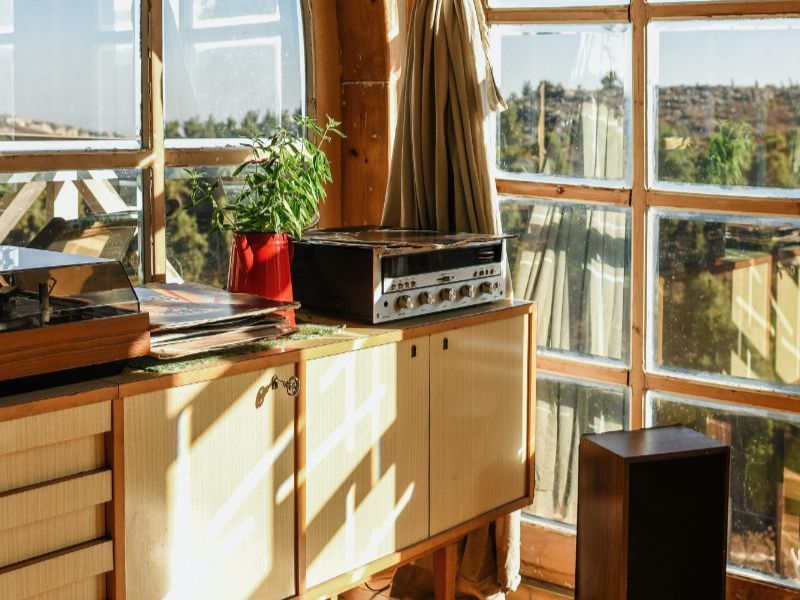While any top-quality turntable should have impeccable sound no matter what, your set-up might be hindering its performance. Luckily, there are a few simple things that you can do to resolve this.
As firm believers that vinyl sounds better than digital, we’ve spent many years learning how to enhance our listening experience even further. The tips and tricks in this guide will help you get the best sound from your turntable, time and time again.
1. Brush your records often
Did you know that a grubby record can cause a crackle or distorted sound? And, if left for too long, it may even break your record players stylus.
The easiest way to keep your records in good condition is by using a special record-cleaning brush. These brushes usually go by the name of Anti Static brushes; they feature carbon fibers to remove any dust or dirt particles.
Unlike standard cleaning brushes, Anti Static brushes are gentle and therefore do not scratch your record.
2. Clean your record player yearly
While you can brush your records as often as you like, focus on cleaning the whole player around twice a year (depending on how much you use it).
Understanding how to look after your record player is incredibly important; if you neglect it, you’ll risk distorting the sound or permanently damaging the device. For best results, gently take the player apart to clean the inside with a cloth. It’s also key you keep your turntable platter mat clean as well.
Top Tip: You can use a small amount of alcohol rub on the areas with stubborn marks. Just ensure that it dries before assembling the turntable back together!
3. Add stability to your set-up

Your record player set-up is almost as important as the record player itself. But, this isn’t just for aesthetic purposes. While there’s no denying that well-planned record player set-ups look amazing, they also determine sound quality.
As you probably know, the sounds we hear are caused by vibrations in the air. Turntables rely heavily on these vibrations, meaning if they’re sat on an unstable surface, the sound may suffer as a result.
To improve the quality and stability of your turntable’s sound, place it on a sturdy table. This will prevent any issues caused by extra vibrations, allowing your turntable to play music to its best ability.
4. Get an alignment protractor
If your turntable doesn’t already have a fixed headshell, you may find that the stylus sometimes misaligns with the record’s grooves. This can cause ‘inner groove distortion‘, which usually occurs towards the end of the track.
To prevent inner groove distortion from occurring, fix an alignment protractor onto your turntable. An alignment protractor ensures that your turntable’s stylus stays in place in the groove.
5. Replace the stylus

If an alignment protractor doesn’t improve the quality of your stylus, it might be time to replace it. This is particularly true if your turntable is producing dull sounds, as this is a sign that the stylus has warned down.
It’s perfectly normal for a stylus to wear down, especially if you use your turntable every day. Luckily, you can replace a stylus without needing to get a brand new turntable. Just make sure to check the model’s instruction manual to know what one to get.
6. Plug your headphones in
Sometimes, all that is needed to improve sound quality is a fresh perspective. If you fancy a change from your usual listening experience, why not plug some headphones into your turntable?
If you’re a headphone lover, you’re probably already well aware that some music sounds better with them on. This is no different with vinyl; it’s perfectly normal for the sound quality to improve once you put headphones on. Give it a go and see if this helps with your problems.
7. Upgrade your system
If you follow all of the tips in this guide yet still struggle with sound quality, it might be time to cut your losses and upgrade your system.

There is a whole range of reasons why inexpensive turntables might not sound as good, whether it be due to the amplifier or flimsy materials. Unfortunately, if this is the case, small adjustments might not do the trick. Instead, it’s better to treat yourself to a higher-quality turntable.
High-quality turntables don’t have to break the bank, just as long as you know what to look for. Remember to do your research and find one that will suit your preferences. And, don’t forget to create a good set-up for it at home!
8. Embrace the warm crackle
If the only concern with your turntable is a slight crackle, you might not even need to make any changes. Turntables are notoriously known for creating a crackling sound every so often, especially as the stylus first meets the vinyl. This sound is a completely normal part of the process, and many people prefer vinyl over digital because of it.
If you aren’t a fan of the warm crackle from a turntable, you may be better off listening to music on a different device altogether. You might ask yourself if a turntable needs a speaker, the answer is yes. So consider switching to a Bluetooth speaker to see if you prefer the audio. If not, then a modern turntable may reduce the crackling noise produced.
It’s clear to see why turntables are so popular
Even though more advanced technologies have come onto the scene, turntables have been around for decades. With so many new models to choose from, as well as old ones, it’s safe to say that they are here to stay.
There are many reasons why record players have stuck around, with the sound quality being one of them. And now, with help from the tips in this guide, you can keep your turntable sounding pitch-perfect for many years to come!








